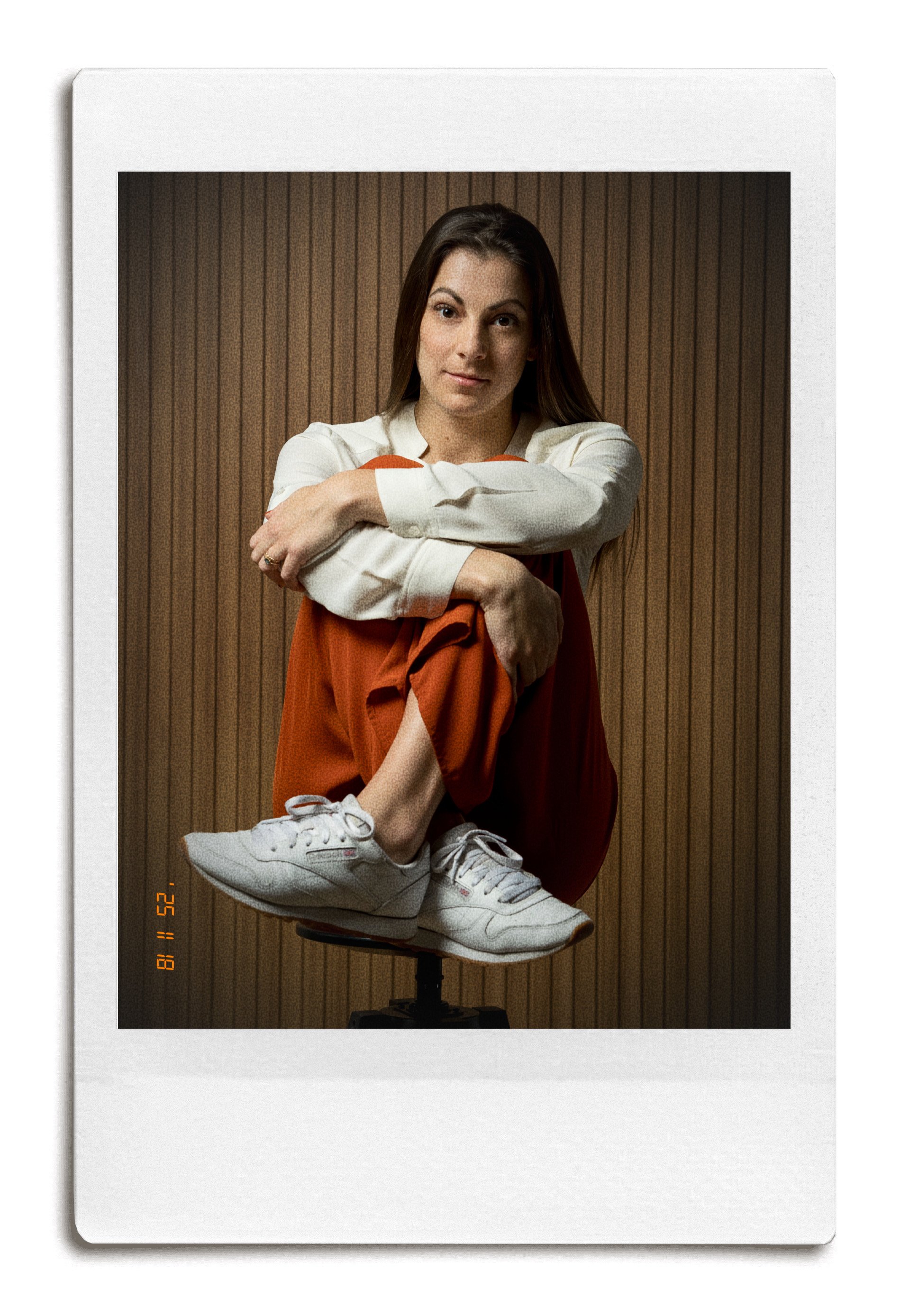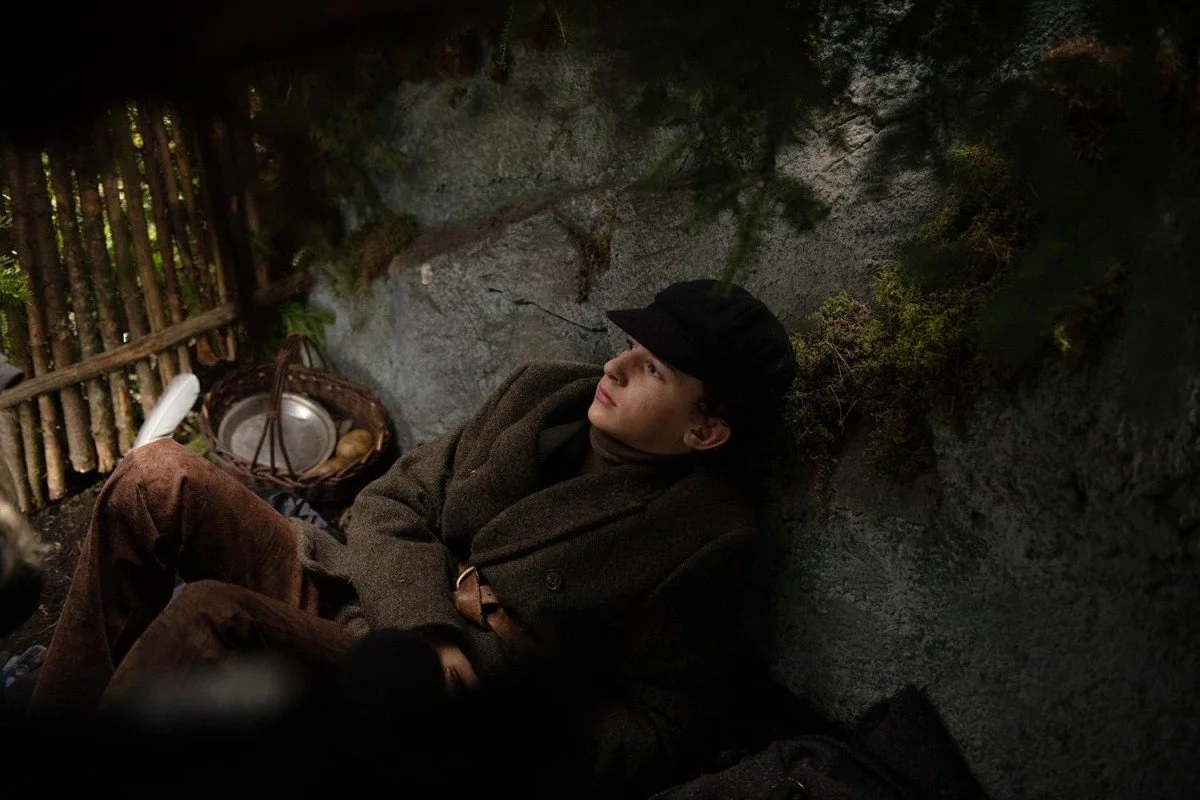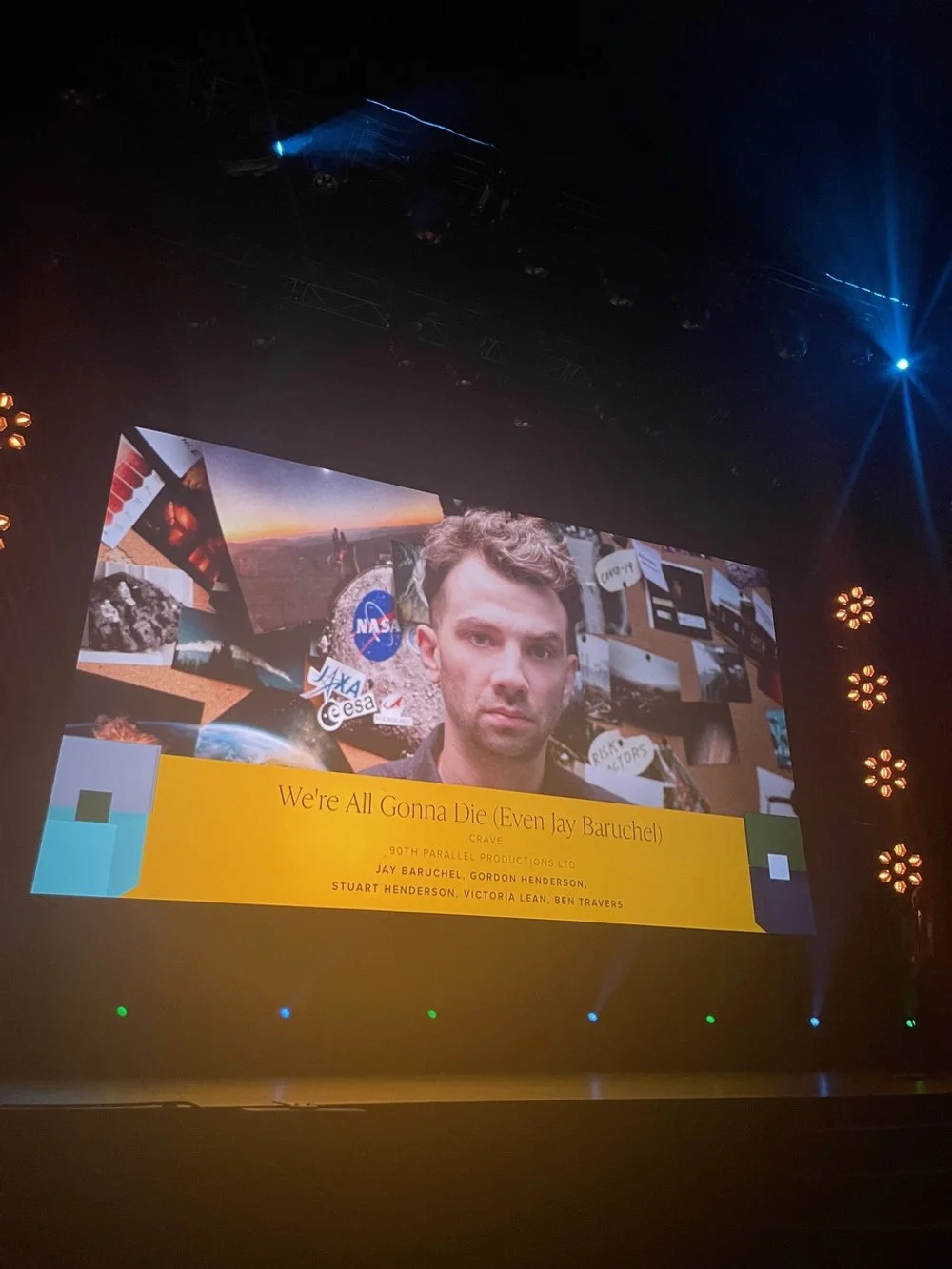I'm a film tourist. I'll be the first to admit it. I'm scared to take the plunge and make my own film. However I am utterly engrossed in film culture. I read the magazines, I follow the twitters and I join the clubs. Film culture can be enjoyed by filmmakers and film lovers alike. They are great avenues for making new friends, networking, and discovering new work that you may enjoy. I'm lucky to live in Toronto which is home to a flourishing film culture.
Fantastical: One More Time With Feeling Mr. Fox
This is about a movie that has been out for a while now but comes from one of my favourite directors, Wes Anderson. His first children's movie, The Fantastic Mr. Fox, came out in 2009. I only realized after the fact that this director created The Royal Tenenbaums, another favourite of mine. I had felt that same joy I had during The Tenenbaums as I did in Mr. Fox. Then a wondrous friend connected the two together and I became instantly an auteur fan. For indeed, Wes Anderson is an auteur.
TECH-nically a Women - Fully a Person
Two experiences in the last two weeks that have changed my perspective
After having watched The Hundred Foot Journey (Lasse Hallström, 2014), I picked up the novel and whipped through it in under a week. Quick plot: a family from Indian emigrates to a small country town in France. The family opens up a restaurant, attracting much attention from a local high top restaurant owner, Madame Mallory. She takes the main character, Hassan, under her wing and he ends up in Paris with his own 3-michelin star restaurant. My favourite part about the story came at the very end, when the michelin-inspection committee calls Hassan to award him his third star. The critic says, "you are the first foreign chef in the city to ever win a third star." Quite a backhanded compliment.
Similar to this experience, I read an article in LinkedIn called "Recruiting, and Retaining Women in Tech." A good brief article about why women feel unwelcome in tech related careers,
"If your company is mostly male, you will have to work extra hard to create a women-friendly culture, where women don't feel they are different" - Caterina Fake (CEO, Findery).
The article ends with a call to action:
"Don't just sit and wait for women to apply for jobs. Make sure your company is friendly to women. Let it be known that you are interested in recruiting and retaining women. Build your own pipeline for applicants."
My immediate reaction was positive. Of course women (like men) want to feel comfortable and safe entering a work environment. And let's be honest, certain jobs have a reputation of being ill-suited for women. Upon further consideration, however, I also realized that it might potentially be backhanded. Like our compliment above. What if you found out after being hired at the workplace of your dreams that you were considered there, not solely based on skills, but because you were a woman? How do you feel?
WHY
Sheryl Sandberg and Adam Grant write a column called Women at Work in the Sunday TIMES. This past week, they explored "Why Women Stay Quiet" in workplace environments. They open with an example of an incident I believe we have all been through:
"Almost every time [women] started to speak, they were interrupted or shot down before finishing their pitch. When one had a good idea, a male writer would jump in and run with it before she could complete her thought." - [reported by Glenn Mazzara]
Sound familiar?
I attended an extremely inspiring and helpful talk by Carolyn Lawrence, President & CEO of Women of Influence. She talked about how men and women learn differently, but that both genders are key ingredients for a company's success. It is figuring out how to use each other's best qualities / assets that is the challenge. Once this hurdle is overcome, however, success follows.
I walked away with two feelings. The first is, no longer will I remain quiet. If I have ideas, I will share. Later that week I did just that. And what happened? I was immediately interrupted. However, unlike the ladies above, I took matters into my own hands. I stopped that male speaker right away and politely said, "I am sorry, I was not finished my thought."
What happened next?
They were not offended and actually stopped talking. I was able to finish my thought and even though they shot it down shortly after, I had at least commanded the attention of the table for that split second without endangering myself as being called rude.
The second lesson I learned is to ACTUALLY walk away. She said that if your situation has reached a point where you feel unhappy, then leave. So simple. The grass is always greener on the other side.
Concerning Balancing Gender Diversity in the Technical Sectors
OKAY. So. How do we balance these ideas? How do we address the need to have gender equality in the technical sector without calling attention to gender itself?
Women as persons. That is my balancing solution.
Another article was brought to my attention at a meeting with MUFFS (Monthly Underground Female Film Society, Toronto) this past weekend: "Ten Surprising Movies Directed by Women".
First off: Dear writer who is indeed a woman, why is this surprising at all? Did these films possess an overall male-aesthetic and male-perspective? What is the surprise: the fact that these films are successful? The fact that these films won awards?
"Not only did the film get nominated for 4 Canadian Screen Awards, and 3 Oscars, it was directed by a woman (whereupon multiple exclamation points appear - profusely overused - for an exaggerated effect)."
No more.
Support for women locally
To me it is so simple. People are people. Women are people. Therefore, let's celebrate human achievement - irrespective of gender. His-story is made up of Her-story too.
*Excuse my lack here at this moment of mentioning RACE or SEXUALITY or CULTURE. These are three completely different (yet interrelated) topics to tackle for a different week.
What can you do? Join a club. Join a society. Volunteer. Blog. Listen. Read. Educate yourself. Empower the people around you. Use language as a positive inducer versus as a Debbie Downer.
I helped volunteer at a really cool event this past November called Women Who Rock - Auction for Action. A collection of top mining CEOs gathered that evening on stage and were auctioned off to women in the mining industry for a one-on-one counselling session (career advice and young entrepreneurs). All proceeds ($6,000) were raised for the Alma Fund, which financially supports women in South America.
Support for women internationally
I recently signed a petition with Global Fund for Women concerning "ending the gender technology gap." This initiative supports international women by making available all areas of technology / science / development to both genders in an equal environment.
To conclude my analysis, there is definitely a move towards awareness in the workspace concerning the lack of women in the technical sectors or even the absence of female contribution or shared opinion. Please share some articles you found intriguing and continue the talk moving forward.
People as people,
- Jenn
BLOG CONTRIBUTORS
Her (Spike Jonze) - Film Analysis
Seeing Him through Her perspective
Starring Joaquin Phoenix (Theodore Twombly), Scarlett Johansson (Samantha), and Amy Adams (Amy), Spike Jonze explores the possibilities (and functionalities/benefits/limitations) of a romantic relationship evolving between a man and an operating system on his computer/cellular device: better known as Samantha. It is “Samantha” because in a list of hundreds of female names, that is the one the OS 1 liked best. I say evolving because the relationship is dynamic and changes throughout the course of the film as Samantha eventually becomes a multi-platform software and stretches her services to more than 600 users.
Charlotte Ficek - A Diner Series at Boxcar Social
I had the privilege in November to document my friend's art show at Boxcar Social, a trendy coffee / liqueur place midtown, Toronto.
Charlotte Ficek drew her inspriation from some experiences she had at diners all over the city and came up with her art collection.
From grumpy pizzas, to unhappy tacos, to gruelling banana splits, Charlotte really demonstrated a complete diner experience in all her art.
It was enough to make anyone's mouth water.
You can see from each artistic iteration of Charlotte's imagination, a bit of her lovely personality coming out on the canvas in a whirlwind of colour.
Thank you to Boxcar Social for hosting this event, you were the perfect venue for Charlotte's art.
- Jenn
*PS: you can order her illustrations on t-shirts and cell phone cases. Hit the link here to go to her personal site!
The Grand Budapest Hotel: Camera as Director
There are too many things to be said for Wes Anderson's latest film, but there are some important notes I must log here because I think they are just brilliant.
I am first and foremost, a massive fan of his collection of works. Not realizing at a younger age just who he was, I fell in love with The Royal Tenenbaums and this carried me through until I saw The Fantastic Mr. Fox and Life Aquatic.
Complete Filmography
What makes Wes Anderson's films so lovable are his characters and intricate plotlines. The characters are usually simple in that only enough of their life is made known to the viewers to guide them through the film. We are never emotionally attached to any character because we are only fascinated by them. This makes it very easy for Mr. Anderson to kill off characters at will, without a tear being shed by the audience. The narrator of The Grand Budapest goes so far to say in his voice-over narration that little is known of Mr. Gustave because he never told anyone who he was or where he came from. He is who he is in the film and that is all that we as the audience need. We learn who he is not through history but through his present character development. There are a few times, such as those in The Royal Tenenbaums, where Mr. Anderson does use flashbacks to get the viewers up to date with the current story. But even then, the action of the past is used to describe the present action (making it once again in the moment and alive).
How are we not emotionally attached to any character? Ask yourself this: do you relate to his characters? The answer is usually no because his characters are extremely fictional and even aware of their fictionality. They are serious people leading lives that are meant to be taken seriously, but all through sarcasm and a theatrical flare. I dare say, Shakespeare would have gladly sat through any Anderson film (if he were still kicking around)...
But I stray. We remain interested in the plot and what happens to the characters because of our own curiosity. Like Deputy Kovacs cat before it is tossed out the window and declared "deceased." When Mr. Gustave H. is in jail, we are only concerned in how he will escape, without a tinge of sympathy for his well-being. His actions spur the narrative forward, and his commentary undercuts any moment in which the characters 'ought' to portray emotions. After Mr. Gustave H. and Zero Moustafa are beaten on the train for the first time, Gustav tries to recite a poem to express his emotions but stops half way through with a "f*ck it." And by undercutting the actions, we the audience are never given time to react properly. The only sounds that we can express from an Anderson film is muted laughter or witty chuckling.
The theatrical-ness and fictionality of the worlds that Mr. Anderson is able to create are more in control than the characters. This can be interpreted by the camera movement. Most films create a sense of action-realism in the narrative by having the camera follow a character's actions. It is as if the camera just happened to be there and is turned on. In Mr. Anderson's films, though, the camera often moves before the character has a chance to go off frame and rests for several seconds on a blank stage. The characters reappear again and continue their actions. The camera is directing the story and pulling us away from getting too carried away with the characters. It tells us where to look, when to look, and what to take away from that particular scene. These montages are then linked together by a series of inter-titles highlighting the introduction of characters/events that will be introduced into the plotline. We do not question the entrance of each character and automatically believe that they too exist in this filmic world.
When Mr. Gustave is declared dead before he is able to grow old from a bullet I felt little sadness for this, as little as Zero's wrinkled face showed. "The world that Gustave lived in died out long before he was born. But he carried the falsity through with charm and grace" (something to this effect is expressed at the end of the film by Zero).
There are two relatable strong emotions (if we can even call them that in light of Anderson) greatly explored in the film: sexuality and love. The latter is more simple. Gustave's love for old blond women, Zero's love for Agatha, the author's love for his grandson, and the curious girl at the beginning who visits the dead author's grave. Perhaps the most memorable exclamation of love is on the train when Mr. Gustave yells angrily at the 'firing squad': "GET YOUR HANDS OFF OF MY LOBBY BOY."
On the note of sexuality - this mainly takes place through Gustave's interactions with his hotel guests and the graphic painting of the two women pleasuring each other, which replaces "The Boy with Apple." The painting is a hilarious undercutting of what Boy with Apple stands for (innocence and vitality). Yet, the two women are neither offensive or vulgar - it is just a starkly opposite portrayal. What is made clear, however, is the underlying attraction Gustave has for younger boys. All the concierges seem to have an attraction for boys too. Whether sexual or purely platonic, the movie never makes a clear case.
To draw these thoughts to a close, I say go watch the film if you haven't and if you have you will perhaps agree/disagree with my analyses (feel free start a discussion below).
I am afraid that will be all "darling."
Until the next Anderson film.
- Jenn
Happy New Year 2015
What an amazing year 2014 was. Especially when it came to film. I saw the most diverse group of films this year:
Her (Spike Jones)
The Grand Budapest Hotel (Wes Anderson)
The Lego Movie (Phil Lord, Christopher Miller)
An Eye for Beauty (Denys Arcand, TIFF screening)
Madame Bovary (Sophie Barthes)
Girlhood (Céline Sciamma, TIFF screening)
The F Word (special TIFF screening)
Gone Girl (David Fincher)
Top Five (Chris Rock)
Interstellar (Christopher Nolan)
Imitation Game (Morten Tyldum)










